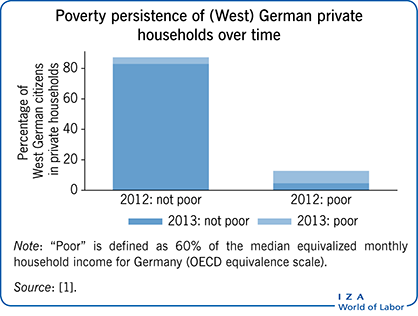Elevator pitch
Stability and change are essential elements of social reality and economic progress. Cross-sectional surveys are a means of providing information on specific issues at a particular point in time, though without providing any information about the prevailing stability. Limited information on change can be obtained by retrospective questioning, but this is often impaired by “recall bias.” However, valid information on change is essential for assessing whether phenomena such as poverty are permanent or only temporary. Panel data analyses can address these problems as well as provide an essential tool for effective policy design.

Key findings
Pros
Repeated observations of the same individuals over time show processes of change.
With panel data, the processes of maturation (aging) can be differentiated from generational differences.
Sample selectivity and biases due to omitted variables can be controlled with panel data.
The temporal order of effect and cause is known when using panel data.
Cons
Observing individuals over time is challenging and the number of individuals lost in following panel waves (“panel attrition”) may be substantial.
It is difficult to capture natural changes of the population and processes of migration in survey design.
Repeated measurements may elicit stereotypical and streamlined answers; measurement instruments may vary over time, compromising comparability.
Panel studies are costly as they involve long-term investments in terms of financial and human resources.